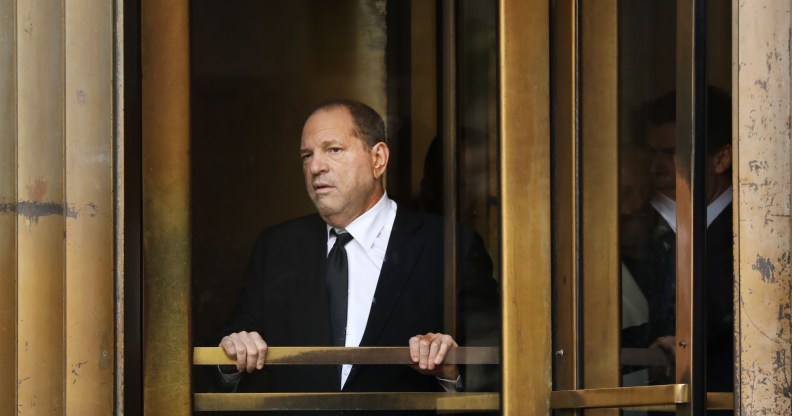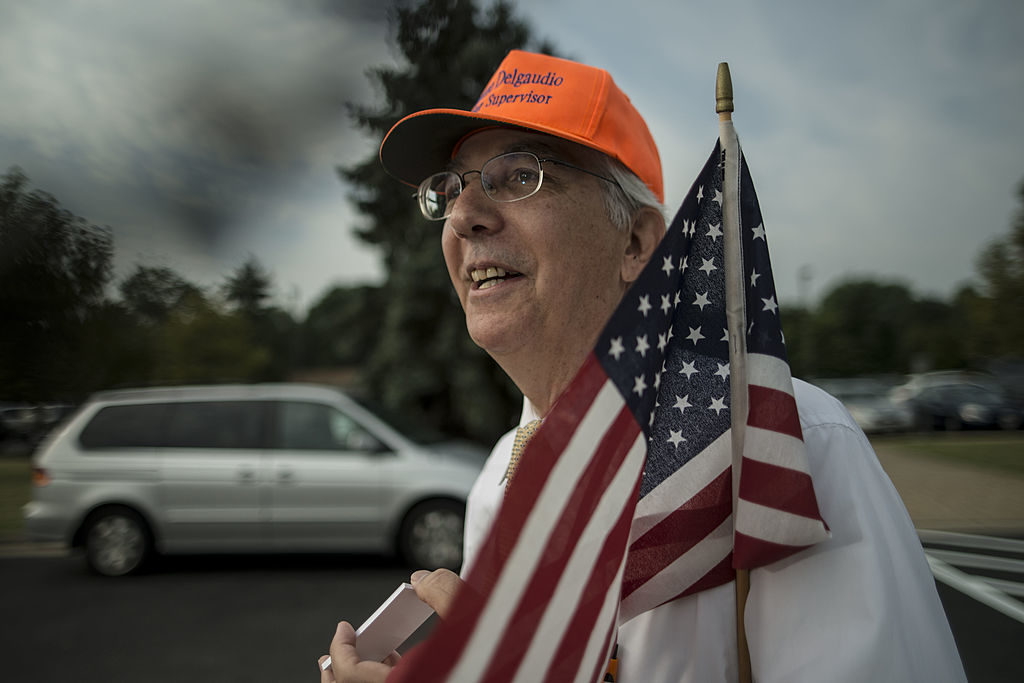Anti-gay hate group claims protecting LGBT+ Americans would enable the next Harvey Weinstein

The group claims LGBT+ protections will lead to the next Harvey Weinstein (Spencer Platt/Getty)
An anti-gay hate group has filed a brief with the US Supreme Court arguing that protecting LGBT+ people from discrimination would enable the next Harvey Weinstein.
The US Supreme Court is set to consider the cases of three people who were fired for being LGBT+, with justices expected to rule on whether employers acted illegally under sex-based civil rights laws.
A slew of anti-LGBT lobbyists eager to make their views known have filed friend-of-the-court briefs in the case, arguing discrimination should be legal.
Hate group worried about slippery slope.
Public Advocate of the United States, which has been designated an anti-gay hate group by the Southern Poverty Law Center, spearheaded one of the most extreme briefs.
Their argument claims that if gay people are protected from discrimination on the grounds of sexual orientation, then “adulterers, predators, paedophiles, and the like – could make the same argument that their sex requires that they be protected against discrimination”.

Eugene Delgaudio, head of Public Advocate of the United States
(Tracy A. Woodward/The Washington Post via Getty)
It claims that the court siding with the LGBT+ employees would “arm the Harvey Weinsteins of the world with a sex discrimination claim with which to counter the #MeToo movement against sexual predators in the workplace”.
The brief goes on to claim that if gay people are protected from discrimination, “the flood gates will open and soon the nation will learn that gays, lesbians and bisexuals are not the only categories of persons who violate sex-based stereotypes and can be protected by judicially crafted legal theories.”
Harvey Weinstein is heterosexual and being accused of sexual assault is not a sexual orientation.
The brief goes on to claim that discrimination laws could be used to bar discrimination “men attracted to under age girls, and women attracted to under age boys”.
Not the first time they’ve prophesied disaster.
It is not the first time that the group has sought to weaponise a surreal “slippery slope” argument in a Supreme Court brief.
A 2015 brief filed by the same group, while the Supreme Court was considering same-sex marriage, predicted that the ruling would leave the door “wide open for three women or three men to marry, and, if they can marry, then why not an uncle and a niece… or a step-brother and sister?”
While same-sex marriage was legalised across the US by the Supreme Court, it remains illegal to marry one’s uncle, step-brother, or both at once.
The case has also seen interventions from the Trump administration, Republican lawmakers and 15 Republican-controlled states, arguing that it is legal for employers to discriminate against LGBT+ people.

